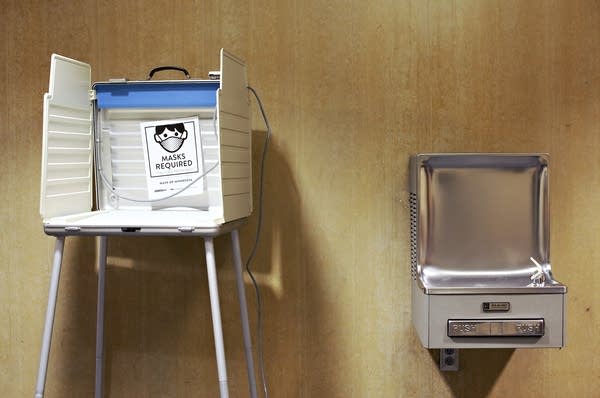Minn. Appeals court deals setback to voting restoration push

A reminder of Minnesota's mask mandate awaits voters at the Clay County Courthouse in Moorhead, Minn. The Minnesota Court of Appeals turned away a legal bid Monday to more quickly restore the voting rights of past felons.
Ann Arbor Miller for MPR News 2020
Go Deeper.
Create an account or log in to save stories.
Like this?
Thanks for liking this story! We have added it to a list of your favorite stories.


